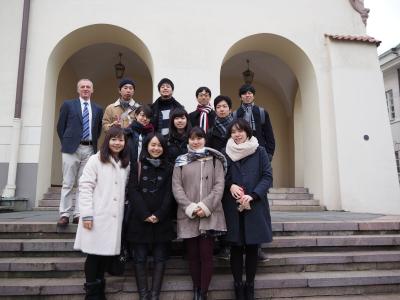国際教育
The 12th Euro-Japan Dialogue in Tallinn and Vilnius
The 12th Euro-Japan English Dialogue took place this November at Tallinn University and Vilnius University. This was the first time for the program to visit Estonia and Lithuania, two EU nations with fascinating histories. Ten students from the Department of Economics met in Tallinn, the capital of Estonia, on November 8th, and carried out presentations over a week introducing Japanese society and culture, and exploring the topic of ‘Labor Shortage and Immigration’ from an economics viewpoint.
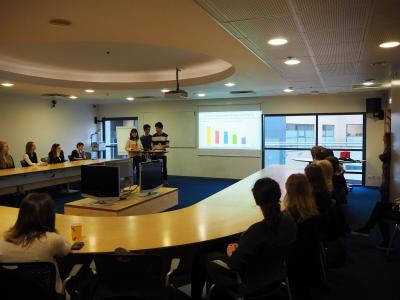
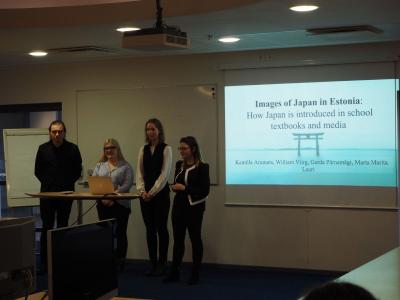
At University of Tallinn, a presentation on ‘Images of Estonia in Japan’ was given by the YNU group at the request of our Estonian colleagues. The YNU cohort introduced a survey of Japanese undergraduates. Students were asked three questions: first, where Estonia was on a map of Europe; second, to name a famous Estonian; third, to name the capital city of Estonia. The results revealed very little awareness of Estonia among Japan’s students. However, the YNU presenters went on to show that the two countries share similar profiles in such areas as IT development, and scholastic ability measured in the PISA rankings. The Tallinn students presented on images of Japan in Estonia, discussing what they thought were problems and misrepresentations in textbooks and other media. After the Dialogue session, the YNU students took part in a Japanese lesson, working in pairs with the Estonian students to help them acquire Japanese conversation ability.
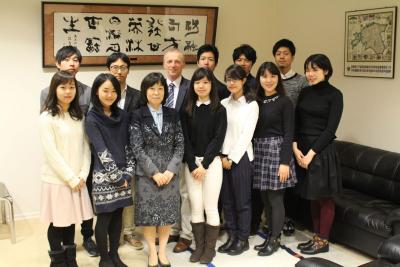
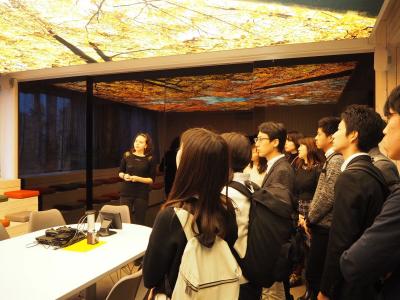
Other activities in Tallinn included a visit to the embassy of Japan to meet ambassador Yoko Yanagisawa, and hear presentations on social and economic ties between Estonia and Japan. The YNU group also paid a visit to Mektory, an innovation and business center that is a joint enterprise of universities, state, foreign embassies and businesses. One aim of Mektory is to encourage and support student start-up businesses. The tour included a visit to the ‘Japan’ room, and explanations of the involvement of Japanese companies. There was also a chance to see Estonia’s contribution to space exploration, which the tour guide described as “Estonia’s NASA.”
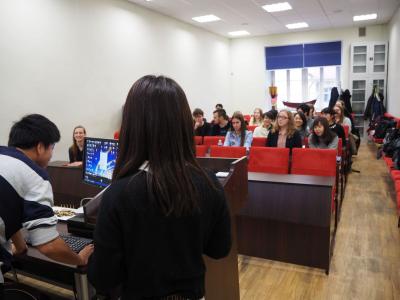
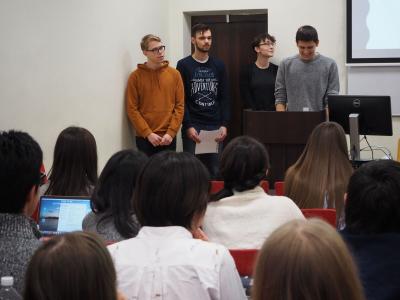
On November 12th the venue shifted from Estonia to Lithuania. More debate, discussion and presentation took place at Vilnius University. Visiting the Japanese department, YNU students presented on a number of cultural issues related to Japan, including ‘bento culture’ and ‘traditional festivals.’ The Vilnius students presented in Japanese on Lithuanian food and customs. The objectives of developing English in an academic setting, promoting cross-cultural communication skills and enhancing knowledge of issues related to economics were fulfilled, with a discussion on Japan’s approach to immigration proving especially lively.
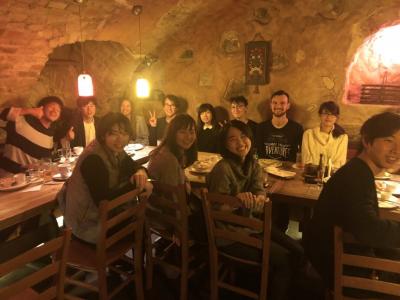
After the Euro-Japan Dialogue session, the YNU students were treated to a lunch in the function rooms of the university. The YNU students then toured the campus with their Lithuanian peers. Founded in 1579, the university’s long and complex history was related by the VU students and faculty during the hour-long tour.
Euro-Japan Dialogue is now a cornerstone of the ‘Global Studies in Economics’ program in College of Economics. Professor Alexander McAulay has been in charge of the program since 2008, and was joined this year by Associate Professor Nozomu Muto, who made sure the students’ economics research was up to par. Keiko Ishiwata was again heavily involved in the preparation process, but was unable to travel as she had duties in Stockholm with the GAEF (Global Applied Economics Forum) program. We are extremely grateful to our European colleagues Margit Juurikas, Akiko Masaki, and Alari Allik at Tallinn University, and Mindaugas Ignotas and Zivile Jomantaite at Vilnius University, for their hard work and hospitality extended to Euro-Japan Dialogue.
During the eight-day sojourn, students created friendships and were exposed to cross-cultural communication in various social events during the week. The 10 students gave presentations on the challenges and achievements of Euro-Japan Dialogue in presentations at a critical reflection session on Tuesday, November 28 in the International Lounge. Attention now turns to the 13th Euro-Japan Dialogue to be held in Lisbon and Barcelona. Applications will be accepted in April 2018.
